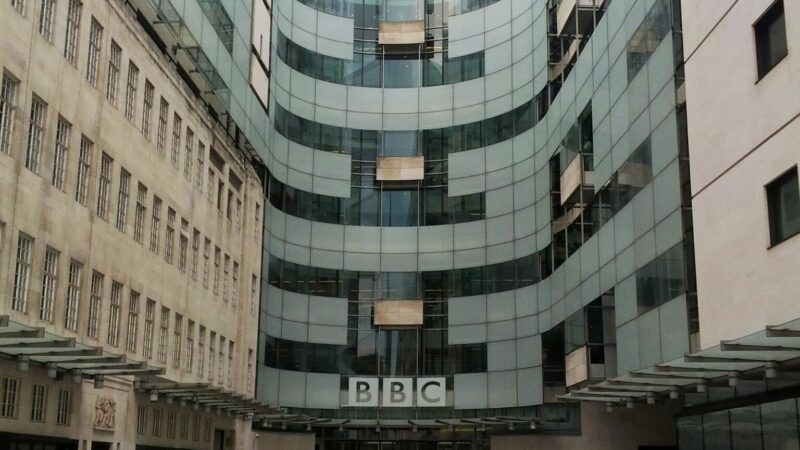The current crisis has shown us just how important the BBC is to our nation.

Although recently the BBC announced that the 450 jobs that had been at risk of redundancy will be saved to ensure clear coverage of the Coronavirus, we still have to ensure that we fight for a fully funded publicly owned BBC.
Within weeks of the election of Boris Johnson as Prime Minister we saw a fundamental shift in the government approach to broadcasting in what was described as an ‘unprecedented’ attack on the BBC’s future. Ministers were pulled off the flagship Today programme, while funding through the licence fee was called into question with an enquiry into the system closing on 1 April.
Many people are talking about changing the service, moving to a more subscription-based model with inspiration from commercial enterprises such as Netflix and Amazon. This came with a clear warning from the BBC that what would be lost in those mechanisms would be educational and children’s programming.
Let’s not forget that the BBC isn’t just about entertainment. Although we’ve enjoyed the drama of Dr Who and Years and Years, the BBC would be nothing without its role to also educate and inform. I am passionate about the natural world, and fondly remember watching David Attenborough with my family as a child and learnt so much over the decades thanks to his BBC platform. I’ve learnt about the Wonders of the Universe while channel hopping, and have BBC Bitesize to thank for my GCSE results.
The role CBeebies and CBBC plays is unequivocal. It is a lifeline to young people and to those with kids. Not only does it provide entertainment but it does so free of advertising and at no cost.
Despite some claims that young people aren’t tuning into the BBC, the variety of programming sees eight out of ten children watching kids TV, 89% of 16-34 year olds using the BBC online every month alongside nine out of ten adults.
As coronavirus sweeps the world and we have become isolated, the BBC has provided a lifeline. From providing fitness routines for the over 70s to children’s education as well as up to the minute news in a country that is changing daily, the BBC has formed part of the essential lockdown survival kit . At a time of national emergency, the BBC is the only real broadcaster that’s able to ensure that our wellbeing and support is at the heart of their programming.
This is why we need the BBC, fully funded through progressive taxation that ensures that we are supporting the very infrastructure that enables programming that isn’t just about commercial value, and is there for all of us in a national emergency.
Current moves to decriminalise the licence fee may have ulterior motives. When the same MPs who vote for benefit caps and austerity then tout their concerns over the fee, you have to question the credibility of their claims to be advocating for people on lower incomes.
A previous independent review has already concluded that it would have a more negative impact on those homes.
Instead, it is an ideological attack on the very foundations of the BBC, with Johnson already expressing the opinion that if other media could find other means of funding then so can the BBC. If it wasn’t an ideological attack, it would be clear about what the future funding of the BBC should look like so that it can continue to deliver it’s vital services rather than leave it with a £200m shortfall in money for programming. Other countries in Europe have tackled this challenge with their public broadcasters either being funded by the government or through payroll taxation.
The BBC also needs to be modernised and democratised. It should have stronger representation of regions and devolved nations, and ensure that people have a say in its governance and structures. Securing better representation of ordinary people should be essential to their programming, which can include everything from audience-led commissioning to strict diversity monitoring, we can work to ensure that the BBC truly represents ordinary people, rather than its current domination by Oxbridge recruits that give it the feel of being part of the establishment.
Although the BBC isn’t perfect, we need to push for it to be improved, not just sacrifice it under a guise of there being something wrong. The BBC might not be ideal, but it is ours. Ours to hold to account, scrutinise, improve and develop with a few changes and genuine funding.
If coronavirus has taught us anything it’s the need for public institutions. From the NHS to the BBC, it’s what we invested in in the past that has given us a foundation to fight against the current crisis.
Amelia Womack is the deputy leader of the Green Party of England and Wales.
Left Foot Forward doesn't have the backing of big business or billionaires. We rely on the kind and generous support of ordinary people like you.
You can support hard-hitting journalism that holds the right to account, provides a forum for debate among progressives, and covers the stories the rest of the media ignore. Donate today.



